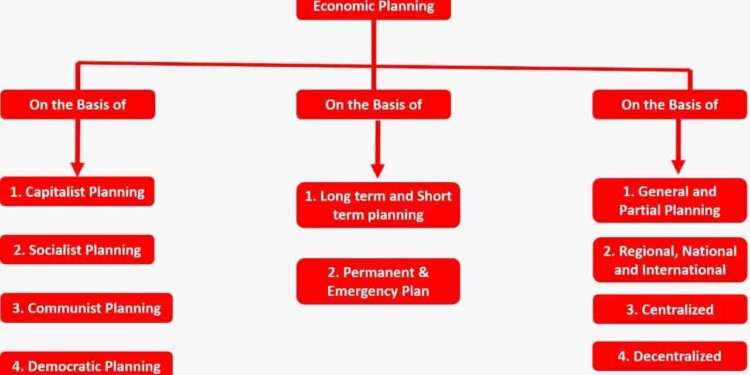In recent years, the term “economic planning” has often been met with skepticism or outright disdain, dismissed as outdated or synonymous with bureaucracy and inefficiency. However, a growing chorus of voices, including contributors to Jacobin magazine, is challenging this perception, arguing that thoughtful, democratic economic planning is not only viable but essential for addressing today’s social and economic crises. This article explores why economic planning deserves a serious reconsideration and how it could serve as a powerful tool to reshape economies in more equitable and sustainable ways.
The Case for Reclaiming Economic Planning in Modern Policy
In an era dominated by market-driven narratives, the notion of economic planning has become unfairly stigmatized-as if it implies rigidity or inefficiency. Yet, global challenges such as climate change, wealth inequality, and systemic unemployment underscore the limitations of laissez-faire policies. Advocates argue that deliberate, coordinated planning isn’t about replacing markets but rather reshaping them to serve collective goals and public welfare. By setting clear priorities, governments can steer investments toward sustainable energy, infrastructure, and innovation, mitigating the chaotic boom-and-bust cycles that often accompany unregulated capitalism.
Key benefits of reintroducing thoughtful economic planning include:
- Long-term stability: Enabling consistent policy frameworks that attract sustainable investment.
- Equitable growth: Directing resources to underserved communities and sectors.
- Environmental resilience: Integrating climate targets into economic strategies.
| Country | Planning Approach | Outcome |
|---|---|---|
| Germany | Industrial strategy & green transition | Strong export growth, lower emissions |
| South Korea | Five-year plans for tech development | Rapid industrialization, innovation hub |
| Singapore | Centralized economic coordination | High living standards, diversified economy |
How Strategic Investment Can Drive Equitable Growth
Investing strategically in infrastructure, education, and green technologies lays the foundation for a more inclusive economy. By directing funds toward underserved communities, governments can address systemic inequalities, fostering opportunities that uplift marginalized populations. This approach not only narrows wealth gaps but also stimulates sustainable job creation, driving long-term prosperity. In contrast to trickle-down economic models, focused investment prioritizes public welfare, ensuring that growth benefits the many rather than the few.
Key components of effective strategic investment include:
- Robust public transit systems that connect isolated neighborhoods to urban job markets.
- Affordable housing projects that stabilize communities and increase economic mobility.
- Tech incubators and training programs designed to equip workers with skills for the future economy.
| Investment Area | Expected Outcome | Impact Timeline |
|---|---|---|
| Green Energy | Job Creation & Reduced Emissions | 5-10 Years |
| Public Education | Higher Enrollment & Skills Development | 3-7 Years |
| Affordable Housing | Increased Stability & Reduced Homelessness | 2-5 Years |
Policy Recommendations to Normalize and Implement Effective Planning
To dismantle the stigma surrounding economic planning, policymakers must first embed transparency and public participation at the core of planning processes. This means creating accessible platforms where citizens, workers, and experts can engage in dialogue with planners and government officials. Additionally, implementing robust accountability mechanisms will ensure that plans are not only ambitious but also adaptable, reflecting real-time economic and social changes. A cultural shift toward viewing planning as a democratic tool rather than bureaucratic control is essential.
Key measures to establish effective planning structures include:
- Decentralized Planning Bodies: Empower local and regional institutions to tailor economic strategies to specific community needs.
- Intersectoral Coordination: Foster collaboration between industries, labor unions, environmental groups, and government agencies.
- Data-Driven Decision Making: Invest in comprehensive data collection and analytical tools that inform predictions and resource allocation.
- Legislated Planning Mandates: Enshrine long-term economic plans into law to ensure continuity beyond electoral cycles.
| Recommendation | Expected Impact |
|---|---|
| Decentralized Planning Bodies | Tailored economic strategies, increased stakeholder buy-in |
| Intersectoral Coordination | Reduced inefficiencies, cohesive development goals |
| Data-Driven Decision Making | Enhanced foresight, responsive resource management |
| Legislated Planning Mandates | Sustained focus, political stability in economic priorities |
To Wrap It Up
In an era marked by growing economic inequality and climate uncertainty, the conversation around economic planning is more relevant than ever. As Jacobin highlights, dismissing planning as a relic of the past overlooks its potential to drive equitable growth and sustainable development. Reframing economic planning not as a burden but as a necessary tool can open pathways toward policies that prioritize public well-being over market speculation. The challenge moving forward will be to move beyond entrenched skepticism and reimagine planning as an essential component of a just economic future.










